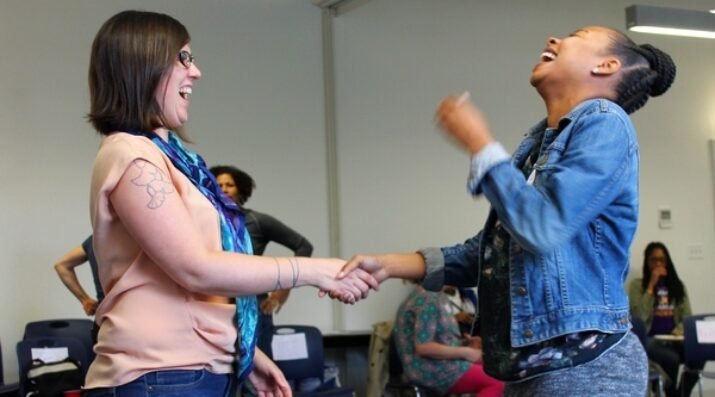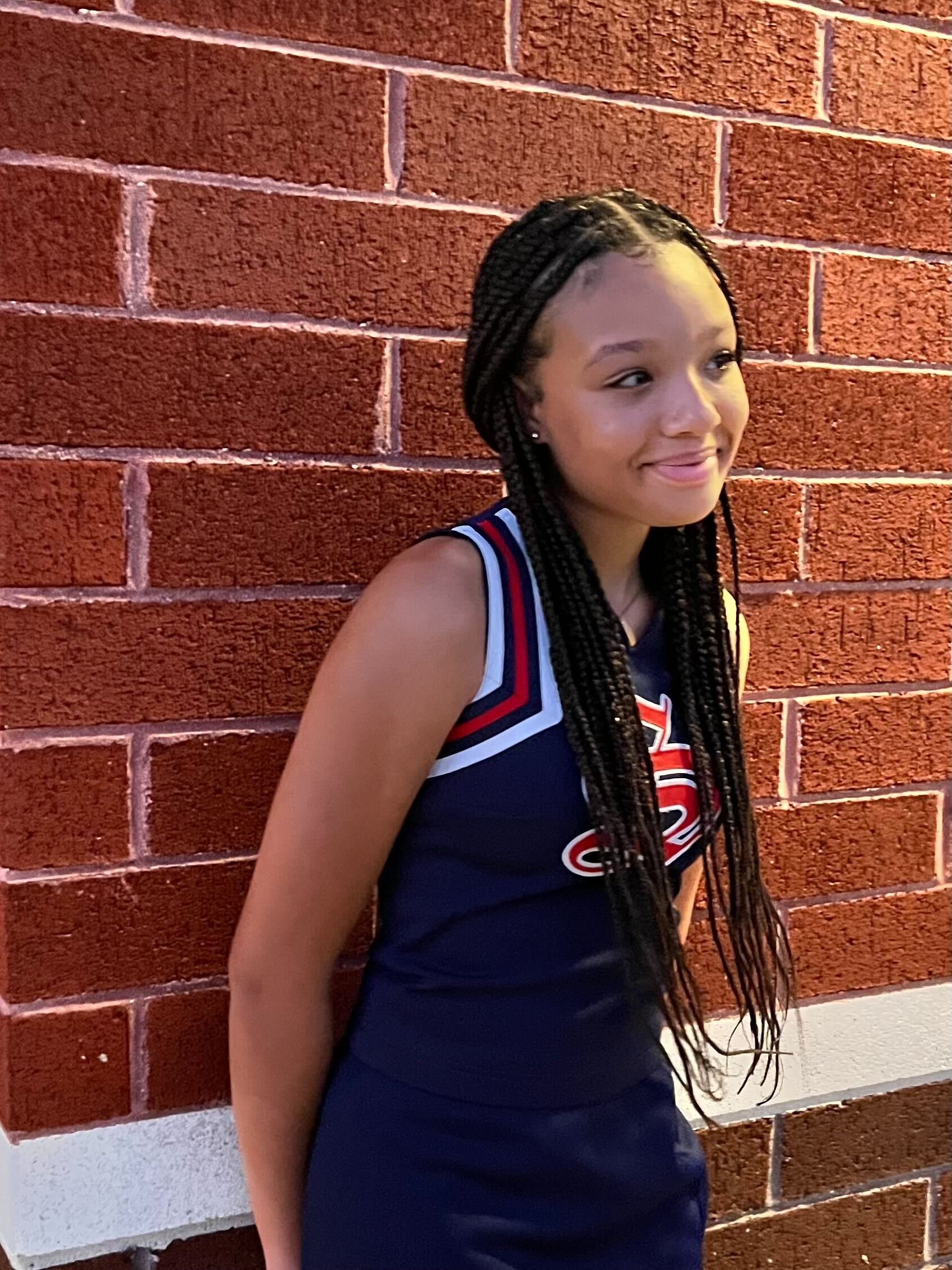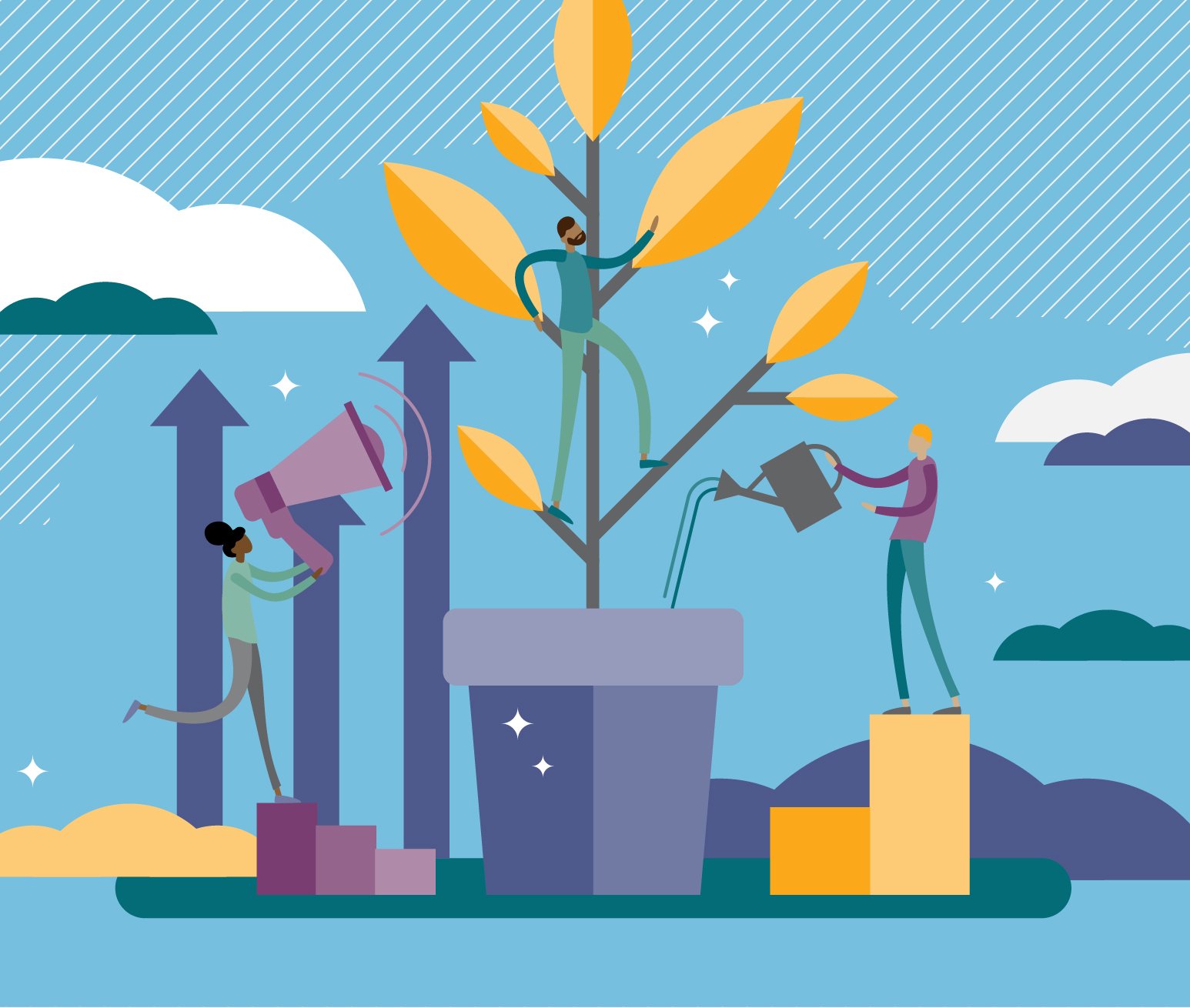Blog

“Keep a Swing in Your Step and a Song in Your Heart:” Music as Self Care
Educators know they need #SelfCare, but how can they do that in a profession that inherently encourages putting others first? These examples make self-care concrete and implementable.

Change is a Two-Way Street
This style of learning adopted by the public school system does not guarantee that learning is evident nor does it ensure mastery of competency of content. A collaborative approach with a focus on a learner-centered style of teaching is essential. Focusing on the student, emphasizing individual learning styles, and allowing authentic learning to happen are necessary for a learner-centered model.

Towards More Learner-Centered Classrooms: One Educator’s First Steps
The title of teacher or educator is deceptively simple and often misunderstood. Even years into the profession, my own definition was rigid and held both myself and my learners back behind artificial barriers. Teachers are role models and mentors, trail guides and cheerleaders, we are counselors and experts, we inspire, and we are artists of the human mind. It is only by embracing this broader and evolving definition that educators can continue to grow, enhancing their practice to be more learner-centered to truly meet the needs of today’s students.

Snapshots: A Journey to the Promise of Public Education in Wyoming
Over the past several weeks, we have circumnavigated the state, covering 1500 miles as we traced the perimeter, touching down in nine school districts. Each district is realizing ambitions for what is best for their kids. There is so much pride in each community; for their schools, and the promise of public education to support each and every learner. One urban district has over fourteen thousand learners; another has 45% English Language Learners, many of whom are newcomers to the state; another has 114 learners in the entire district. Each of these places is different, and each has a unique approach to student-centered learning.

Finding Joy
Finding joy in the work. Such a simple, honest and human-centered goal for why educators would pour their heart and soul into their school and students. In its purest form, finding joy in the work is simply to find value. While the specific aspect that is particularly joyful for each person might be slightly different, the core is common- and arguably a non-negotiable foundation for creating an effective learning environment. So why are they trying to find it? Where did it go?

The Chicken or the Egg?Navigating Policies and Practices
What came first, the chicken or the egg? This old adage has arguably been up for debate since the question was first posed. While it can be argued that the chicken had to be first for the egg to appear, don't all chickens in fact start out in eggs? Similarly, which is more important: having a policy that is permissive and enabling, or having solid systems and best practices in place to realize the vision of the policies?

Nurturing Change during Challenging Times: Centering Young and Adult Learners
In 2019, Gallup demonstrated that schools are facing an engagement crisis as fewer than 50% of students and only 1 out of 3 teachers report being engaged in school. With the recent pandemic, these statistics are certainly much worse. According to Gallup, when schools can engage students, learners are 4.5 times more likely to be hopeful about their futures than their unengaged peers. For teachers, their engagement results in low absenteeism and employee turnover, both key metrics in the national teacher shortage (Gallup, 2019).

AI Could Save Education (But Not In the Way You Think)
For those who weren’t paying attention, November 2022 may have come and gone like any other month, but secondary teachers felt the tremors. Researchers at OpenAI had been developing a generative AI system for years, but it only took five days for ChatGPT to reach one million users. It reached 100 million users in two months. In the blink of an eye, students had a new power…

We’re in a Race? Like It or Not, Yes. The State of Education in Arkansas
In 2023–whether you want to admit it or not–race still matters. Unlike gender, religion, socioeconomic status, or any other demographic identifier, the only one that can be truly "seen" (or easily assumed) is your race. It impacts what people say in conversations, how they view situations, where people choose to send their students for school, and even where they choose to worship on Sunday mornings.

Do Educator Evaluations Even Matter?
Educators need to feel valued in order to be a positive role model and have a positive impact on the children they serve daily. The question then becomes: once they have the goal setting opportunity and the professional development plan determined, what are the next steps to facilitate growth and development in these categories?

Yearning for the Vast & Endless Sea
“If you want to build a ship, don’t drum up the people to gather wood, divide the work, and give orders. Instead, teach them to yearn for the vast and endless sea.”
Antoine De Saint-Exupéry
(The Little Prince)

Getting to Day-One-Ready: Conversations on Transforming Teacher Preparation in Arkansas
In 2015, the Winthrop Rockefeller Foundation and Walton Family Foundation established Forward Arkansas, a nonprofit committed to improving outcomes for Arkansas students. Over the years since its founding, Forward Arkansas has developed a three part agenda to improve public education in the state by- 1) Transforming Student Learning; 2) Building Educator Capacity; and 3) Creating Equitable Systems and Policies. In a quest to directly impact the quantity, quality, and diversity of Arkansas’ teacher workforce, Forward Arkanasas established the Educator Preparation Program Design Collaborative, a competitive grant program and community of practice to identify and support universities committed to addressing issues surrounding educator preparation and retention. Of the sixteen EPPs that applied for the Design Collaborative, eight were chosen to participate, receiving resources and guidance from 2Revolutions and US Prep to develop Phase II plans for transformation.

The Most Important Word of the 2020s (and Maybe, the Millennium)
You will just have to read on to find out what it is.

Meeting the Challenge: Career Exploration to Illuminate Future Pathways for Students
As we emerge from education during the pandemic, we are at a crossroads. The pandemic had seismic effects on education, with students furthest from opportunities suffering the most significant impacts (Sparks, 2022). At the same time, the needs of our workforce continue to evolve, requiring students to possess a different set of skills to achieve postsecondary success. Reverting to the traditional systems and structures is likely to produce the same inequitable results of the past. We can choose to maintain the status quo. Or, we can embrace the challenges before us.

The Absencing & Reimagining of Multiracial Youth Identities in K-12 Settings
Race in America has traditionally been viewed through a monoracial lens. Hence the “one-drop rule” of hypodescent, where having one drop of black ancestry meant one was raced as black. Hence the omnipresence of the “What are you?” question. Hence the insistence of diversity experts to “view America as a ‘salad bowl’ with separate racial/ethnic contributions, view diversity from a narrow-minded American viewpoint, and rely on one critical theory - the ownership of power - that requires each race/ethnic group to be completely separate in a hierarchically oppressed system” (Baxley, 2008).

Retention & Support: Reversing the Teacher Labor Crisis in Rural States
When I arrived at the University of Wyoming in 2021, I thought I knew what it meant to work at a rural land-grant institution, having spent the previous five years at the University of Vermont, in addition to seven years at the University of Georgia and six years at the University of Hawaii. While each of these states has a unique rural character, I was quickly disabused of the notion that I understood rural. Nothing in my career up to that point prepared me for the geographic vastness of my new home state and the challenges that come with those long, unpopulated stretches of unflinchingly straight highway.

Equity Begins with Our Educators
In American public education today, there is a lot of talk about equity–we hear about diversity, equity and inclusion, about leveling the playing field, about ensuring the same high-quality opportunities for all kids. But when you dig deeper, what is actually being done in this regard? With increasing intolerance in our society as evidenced by a rise in white supremacy and acts of violence against ethnic, racial, and religious minorities, and with a larger portion of kids than at any point in modern American history accessing free and reduced lunch (a proxy for identifying people struggling against poverty), something fundamental needs to shift in how schools address this crisis.


I Have Questions and So Should You (You Might Say They Are Essential)
If you ask the right question—one that’s intriguing, compelling, fascinating, provocative, or maddening—the kids will lead you down the rabbit hole. You wouldn’t be able to stop them if you wanted to.

The Answer is in the Room
“What do students need to know and be able to do to be successful?” We posed this question to eight Educator Preparatory Programs (EPPs) across Arkansas as part of the work we are doing with ForwARd Arkansas, US PREP, and TPI-US. The Walton Family Foundation has funded the efforts of this Design Collaborative, consisting of eight EPPs, to grant up to a million dollars to those teams with dedicated plans for innovation, sustainability, and commitment to equity in transforming their pre-service programs. Specifically, 2Revolutions’ work is to push for broader, outside-the-box perspectives regarding what students and teachers need to know and be able to do to be successful in Arkansas and beyond. This perspective is a critical foundation for the transformative work each team will embark upon.
